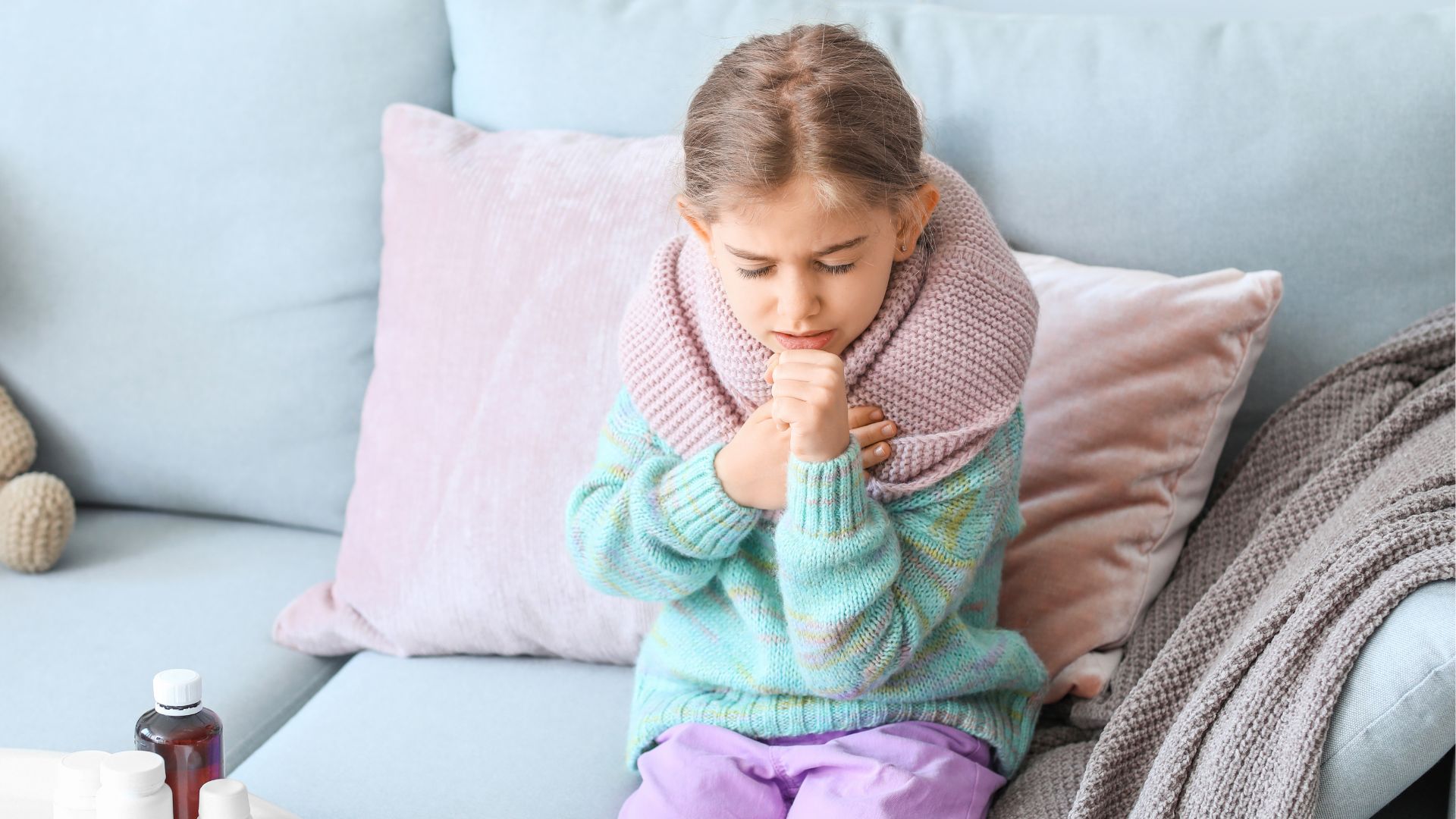
Whooping cough, also known as pertussis, is a highly contagious respiratory infection that can cause serious health complications, especially in young children. The whooping cough symptoms can be mild initially, but the infection can progress to pneumonia, seizures, and even death if not treated. There is a whooping cough vaccine available to help prevent the infection. It’s important to know symptoms and what to do if diagnosed with Whooping Cough.
Symptoms of Whooping Cough
A “whoop,” or the sound of someone gasping for air during a severe coughing bout, is the hallmark symptom. However, the illness can exist without the whoop. A whooping cough infection can spread even before symptoms show. Because the early signs resemble the common cold or bronchitis, diagnosing it can be challenging.
Infants who are susceptible to whooping cough are those who have not yet gotten any or all of their vaccinations. Pneumonia, delayed or interrupted breathing, and seizures (convulsions) can adversely affect infants. Complications for infants might be severe or even fatal. (National Foundation for Infectious Diseases)
Diagnosis and Treatment of Whooping Cough
By examining your contact history and performing tests, doctors can diagnose whooping cough. They check for typical symptoms and a history of signs and conduct a physical exam, along with blood tests. A mucus sample from the back of the throat is tested in a laboratory.
Antibiotics are typically used by physicians to treat whooping cough. Whooping cough should be treated as soon as possible before coughing fits start. Early whooping cough treatment can lessen the severity of the sickness and aid in limiting the transmission of the microorganisms that transmit it to other people.
Even though most patients would still have symptoms after three weeks, treatment is unlikely to be effective. By that time, your body has eliminated the bacterium, but the symptoms persist since your body has already sustained harm. (Centers for Disease Control and Prevention)
Prevention of Whooping Cough
In the US, DTaP and Tdap immunizations are effective against whooping cough. Additionally, these vaccinations offer protection from diphtheria and tetanus.
When Cough is an Emergency
The Centers for Disease Control and Prevention (CDC) estimate that whooping cough causes 24.1 million cases and 160,700 fatalities yearly. Before pertussis vaccines were widely available in the 1940s, up to 200,000 children in the US contracted whooping cough each year, and the infection caused about 9,000 fatalities.
If your cough (or your child’s cough) doesn’t go away after a few weeks or if it also includes any of the following, medical attention is required:
- Coughing out a lot of thick, emerald-green phlegm
- Wheezing
- Having a fever, shortness of breath, feeling dizzy, having swollen ankles, or losing weight
Seek emergency care if you or your child are vomiting or choking, facing breathing or swallowing challenges, coughing up phlegm pink or crimson, and suffering from chest discomfort. (Mayo Clinic)
Protecting the Vulnerable Against Whooping Cough
Whooping cough can be deadly in infants, so it is essential for pregnant women and those who care for infants to be vaccinated against the disease. If you or your child develops whooping cough, it is vital to seek medical help immediately, as the disease can progress rapidly and become life-threatening.
The Emergency Room will evaluate and stabilize patients with breathing and coughing emergencies. If your child is exposed to Whooping Cough and is displaying symptoms, don’t wait until the situation becomes critical before seeking emergency care.
Works Cited
“Whooping Cough (Pertussis).” National Foundation for Infectious Diseases, 25 Mar. 2022, www.nfid.org/infectious-diseases/pertussis-whooping-cough/.
“Diagnosis and Treatment of Whooping Cough (Pertussis).” Centers for Disease Control and Prevention, Centers for Disease Control and Prevention, 4 Aug. 2022, www.cdc.gov/pertussis/about/diagnosis-treatment.html.
“Cough When to See a Doctor.” Mayo Clinic, Mayo Foundation for Medical Education and Research, 13 June 2020, www.mayoclinic.org/symptoms/cough/basics/when-to-see-doctor/sym-20050846#:~:text=Seek%20emergency%20care%20if%20you,bloody%20or%20pink%2Dtinged%20phlegm.
















